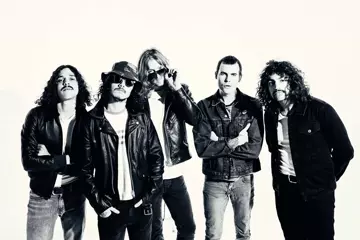Peter Louca, the head of Arts SA, South Australia's advocacy department for the strategic development of the state's cultural industries, boasts a unique perspective on the arts sector's lynchpin position in Adelaide. As both a former political staffer and federal candidate for Mayo, and an ex-graphic designer with an Arts degree from Flinders University, he thoroughly understands the relationship between the blue-sky ideals of artists and the way those talents both enrich and support local infrastructure.
When it comes to this intersection between the creative and governmental, Adelaide has a distinct advantage, he believes. "This city has a long creative history. We had the first international arts festival in the country, so Australia's cultural maturing into adulthood was spearheaded in Adelaide," he explains. "Our local artists have exposure to international creatives and opportunities that can't be experienced anywhere else in the country, so that's long been embedded into our psyche, into our DNA."
"We are a city-state of scale, which means activities here immerse the entire city..."
Adelaide's Arts Festival was conceived in the same model as the famous Edinburgh Festival, and as such, it's been onto a winning formula since its inception in 1958, Louca says. "We are a city-state of scale, which means activities here immerse the entire city, which is quite different to larger centres like Sydney or Melbourne where major arts events can be going on but you'd hardly notice," he explains. "In Adelaide, much like in Edinburgh and Avignon, the infrastructure is so centralised that our festivals immerse the whole city."
In recent years, heavy-handed Federal arts cuts have threatened arts organisations across the country, but it's the duty of groups such as Arts SA to promote the myriad benefits a thriving arts scene offers a city and its population. "Art has always mobilised across societies and been a vehicle for the exchange of ideas, beliefs and values. Art should be transformative, informative, it should be a commentary and a reflection of our wellbeing. It projects us into a space, emotionally and psychologically, that we cannot normally access in day to day life," Louca maintains. "But having an internationally recognised city isn't just a means for Australian arts patrons to feel connected to a diverse and fully realised world of creativity. It also allows Australian artists to tell our stories to the rest of the world. It's an exchange which is utterly vital to the vibrancy of our local artists and the prestige of those artists on a global stage."
Don't miss a beat with our FREE daily newsletter















